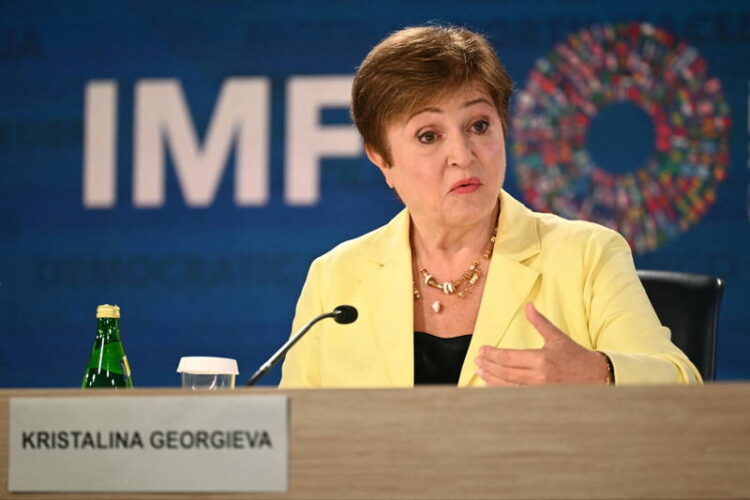At her recent Ethiopian visit, Managing Director Kristalina Georgieva of the IMF praised the country’s established economic reforms because they provide both challenge and necessity for sustainable development.
The implementation of these policies requires unified national unity to bring their expected substantial benefits into reality.
Georgieva expressed her belief that the challenging Ethiopian reform program would eventually yield enormous rewards despite its gradual nature during the February 9, 2025, Addis Ababa press conference. “Some are already becoming evident. This reform requires society to maintain its ongoing support.
Georgieva praised Ethiopia for achieving outstanding economic performance when she observed its 8.1% growth surpassing the 6.1% projection by the IMF during the previous year. The country’s resistance and capacity to succeed became evident through this remarkable accomplishment during difficult times of reform.
The International Monetary Fund gave its support to Ethiopian tax system improvements that focus on increasing revenue through better exemption management and corporate tax regulations. According to the January 29, 2025 country report from the IMF, the organization endorses eliminating tax exemptions for imported intermediate inputs reforming the corporate income tax structure and implementing vehicle ownership taxes.
The financial adjustments have caused hardships for poor families resulting in increased prices and continuous inflation. Fixed-wage workers together with civil servants fear their financial circumstances have become too difficult to manage.
The financial situation of households has become even more challenging due to recent economic changes that elevated electricity rates and implemented new tax rules alongside higher service fees. Government initiatives to reduce inflation together with salary adjustments in public sectors raise concerns from experts about potential adverse impacts on disadvantaged population segments.
According to Georgieva the need for unified action exists to handle inflation during reform operations. The macroeconomic policies will build economic strength which will draw more foreign investment throughout time she declared.
The International Monetary Fund’s current report shows that inflation will rise to 25% between 2025 mid-year and late 2025 before reaching single digits by 2028. Official statistics show that headline inflation lowered to 17% in November 2024 compared to 19% in September while both food and non-food inflation components recorded decreases.
Georgieva conducted meetings with Prime Minister Abiy Ahmed as well as Finance Minister Ahmed Shide and Mamo Mihretu who serves as Governor of the National Bank of Ethiopia. Prime Minister Abiy Ahmed thanked the IMF for extended support while emphasizing his appreciation for both financial aid alongside Georgieva’s personal dedication to the economic reform program. The economic program has achieved favorable results which provide strong indications of success to date.
The Ethiopian government has conducted substantial macroeconomic reforms throughout all fiscal monetary exchange rate and financial sectors during the past half year. The country converted to market-based currency exchange operations with a new foreign currency system when it moved away from its crawling exchange rate system in late July 2024.
Ethiopia implements these reforms to acquire international financial institution loans that require foreign currencies from the World Bank and IMF. The Executive Board of the IMF approved an Extended Credit Facility loan of $3.4 billion for Ethiopia in early August of 2024 after the country sought IMF assistance since 2021.
Long-term economic stability with growth depends heavily on the government’s commitment to policy implementation together with IMF support during Ethiopia’s current economic reforms.






